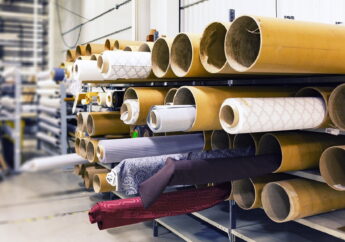10 Things To Know Before Working With An Industrial Supplier
by Abdul Aziz Mondal Business Development Published on: 26 April 2018 Last Updated on: 30 January 2026

If your business is part of the manufacturing industry, you play a big role in the U.S. economy. In 2016, the manufacturing industry accounted for 11.7% of the total economic output in America.
Most manufacturing businesses need some sort of supplier to provide raw materials that allow them to produce their goods. This means the quality of their suppliers affects the quality of their end product.
If your business requires an industrial supplier, you need to know you’re partnering with someone who provides a quality product at a reasonable price.
There are a number of things to consider before choosing a supplier to work with. No stone should go unturned when evaluating your options.
To ensure you have all your bases covered, we’re going over ten things to consider before partnering with an industrial supplier.
1. Quality Assurance :
The quality of your product directly impacts your bottom line. This means it’s essential you test the quality of your supplier’s material before forming a partnership.
Along with the actual product, you should evaluate the packing, labeling, and instructions or marketing materials included. This may seem exhaustive, but it’s better to confirm quality assurance now and avoid issues after a contract exists.
Many suppliers have detailed websites where you can read more about their products.
You should also speak with other clients of an industrial supplier concerning their experience.
Make sure the product they supply is up to your standards. This directly affects your product, so you can’t afford to make a hasty decision.
2. Compare Prices :
Before signing a contract, you need to compare prices of other comparable industrial suppliers. Make sure you’re not paying too much or too little. An overly inexpensive product may point to poor quality.
You should also look into how much it costs to manufacture the supplier’s product. This will better inform you whether a price is fair or not.
When considering price, make sure you understand a supplier’s fees, like delivery charges or restocking fees.
3. Understand Payment Terms :
Once you understand and agree to the pricing, you need to consider the payment schedule.
Make sure you understand how payments are accepted and when they’re due. You don’t want to get into an uncomfortable situation with a supplier because these terms weren’t laid out at the signing of a contract.
Ask the supplier you’re considering if they’re flexible with a payment schedule that’s set by you. Many distributors will work with you if you’d rather pay them every 60 days instead of 30.
They may even offer discounts if you pay upfront for orders.
4. Delivery Options :
If you know you’ll sometimes need urgent deliveries, you need to make sure your supplier can accommodate this.
This is especially important if you rely on your suppliers to maintain operational functionality. If this is the case, downtime means loss of revenue.
Before partnering with an industrial supplier, make sure you understand their delivery process and if any fees apply to urgent requests.
5. Distributor Policies :
Because your supplier is independent of your business, you’re unable to manage their policies.
However, when forming a partnership, you’ll need to form policies regarding the production and distribution of your product. These policies may involve the target customer, guarantees made on the product, and any warranties you require.
You’ll also need to discuss your product pricing with your supplier to ensure they’re on board and feel comfortable with what you charge.
These are all details you should work out beforehand to avoid any legal issues down the road.
6. Liability Insurance :
The industrial supplier you choose should carry liability insurance for their product.
This protects you in the event of product malfunction or breakage. If this malfunction or breakage causes an injury and the proper insurance isn’t in place, you could be liable for damages.
When working with a distributor, make sure they update their policy every year.
7. Ordering Capabilities :
Depending on your workflow, you may need around-the-clock ordering capability from a supplier. This is especially true of contractors who often receive requests at the last minute.
Many industrial suppliers have online ordering functionality. This is ideal.
You should also find out about your ability to check their inventory. This helps you when making large orders for future use.
Along with an online ordering system, you may want to ask if they provide the ability to check your balance and any other online payment options.
8. Is Their Sales Team Knowledgeable?
Many times, when working with a distributor, you’ll be in contact with a sales rep. It’s important they understand each product along with industry technologies and innovations.
You need to know you’re getting reliable information and insight from your supplier rep. A good distributor understands this need and provides training to all inside and outside sales and support members.
When partnering with a supplier, make it a point to speak with their sales staff and ask about their experience. You’ll likely recognize if they’re knowledgeable just by conversing with them.
9. Training and Support :
In addition to a well-trained sales team, a quality supplier also provides training and support to their clients. This involves more in-depth education on the equipment they supply and how it’s used.
This training may be in the classroom or through online presentations. Many also offer hands-on training sessions.
Regardless of the style, your distributor needs to provide these resources so you can get the most out of their product. This also shows they value your relationship and are willing to take the extra steps to secure your knowledge of their supplies.
10. Prices Changes :
Fluctuations in the economy can potentially cause price changes for industrial products. Make sure you understand what factors may cause price fluctuations in the products you’re buying.
You should also inquire if they know what factors dictate a change in price. Also, ask if your prices decrease if their prices go down.
Find the Best Industrial Supplier for Your Business
The quality of your product depends heavily on all the people who work to manufacture it. This means your in-house staff and outside suppliers. Before partnering with a supply distributor, make sure you go over the points discussed here. The last thing you want is a contractual relationship you’re unhappy with.
For more articles that will help you with your small business ventures, check out our blog.
Read Also :



































































































